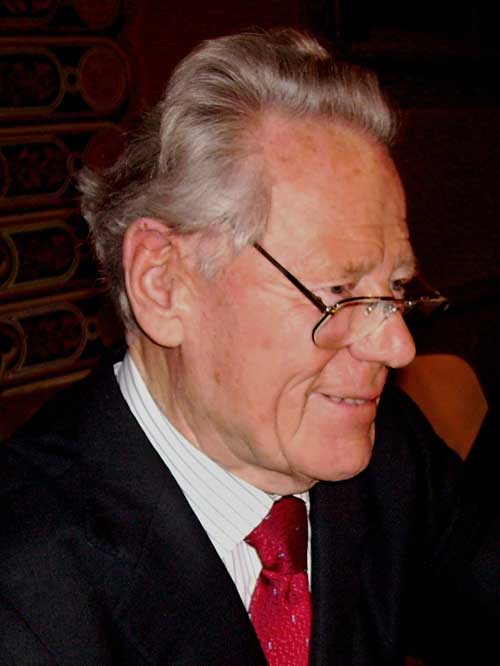
Hans Küng (19 March 1928 – 6 April 2021) was a highly influential Roman Catholic priest and Swiss theologian. After questioning papal infallibility in his book Infallible? An Inquiry (1971), he was no longer allowed to teach as a Catholic theologian, he was allowed to continue to function as a priest, and he remained at the University of Tübingen as a professor of ecumenical theology.
Küng was ordained a priest in 1954 after having studied philosophy and theology in Latin for seven years at Rome’s Gregorian University. He then studied in French for three years at the Sorbonne and the Institut Catholique in Paris, completing a doctorate, “Justification. La doctrine de Karl Barth et une réflexion catholique” ( Justification: The Doctrine of Karl Barth).
Karl Barth invited Küng to lecture in Basel on the theme: The church always in need of reform. A week after this, Pope John XXIII announced his plans for a council. The pope appointed Küng a peritus, an expert theological advisor to participants in the Second Vatican Council. He was only 34, the youngest peritus at the Council. He was joined by now-well-known-names: Edward Schillebeeckx, Yves Congar, Joseph Ratzinger (later Pope Benedict XVI), and Karl Rahner. Küng was helped by being fluent in French, Italian, Dutch, German, English, and Latin.
Interestingly, it was Küng who urged the Catholic faculty at Tübingen to appoint Joseph Ratzinger as professor of dogmatic theology. This was before Ratzinger did his dramatic theological volte face in 1968!
Küng began Weltethos (“Global Ethic”) to describe what the world’s religions have in common (rather than what separates them). This resulted in Towards a Global Ethic which was signed at the Parliament of the World’s Religions. This led to the UN’s Dialogue Among Civilisations.
I have read many of Küng’s books – they were always eminently readable and thought provoking: The Church; Infallible? An Inquiry; Why Priests?; On Being a Christian; Does God Exist? An Answer For Today; Eternal Life : Life after Death As a Medical, Philosophical and Theological Program; Why I am still a Christian
I conclude (this being a liturgy site) with Küng and liturgy
Those privileged to see Küng say Mass …saw a man of deep faith who gave as much attention to the words and symbols of the liturgy as he did to composing his books and lectures…
“I have a real aversion to bad liturgy,” he said. “I think it is essential that people feel immediately that the man presiding believes what he says, is committed to this cause, is addressing them and not just performing prayers. The nicest liturgical words and the highest praise of Christ — unless backed by Scripture and understood by the people — are just not useful,” he said in Tübingen.
Years later in a final seminar on “Eternal Life” delivered to 20 students and 20 auditing professors at the University of Michigan, Küng focused on the Last Supper.
“We see a man facing his death. It’s very simple. It’s a ceremony in a traditional Jewish context. He takes bread, gives his blessing, breaks it, passes it out,” Küng said, extending his arms to those close to him. “He knows it’s his last time with them. He says: ‘Take. My body. Remember me. This night.’ “…
“There are depths of piety in this man that we’ve not yet begun to fathom,” biblical scholar David Noel Freedman told NCR after the seminar. Freedman credited Küng’s strong faith to his very traditional Swiss Catholic upbringing, his strong mother, and his father who ran a shoe store in the middle of Sursee — “and those five sisters of his.”
Patricia Lefevere


